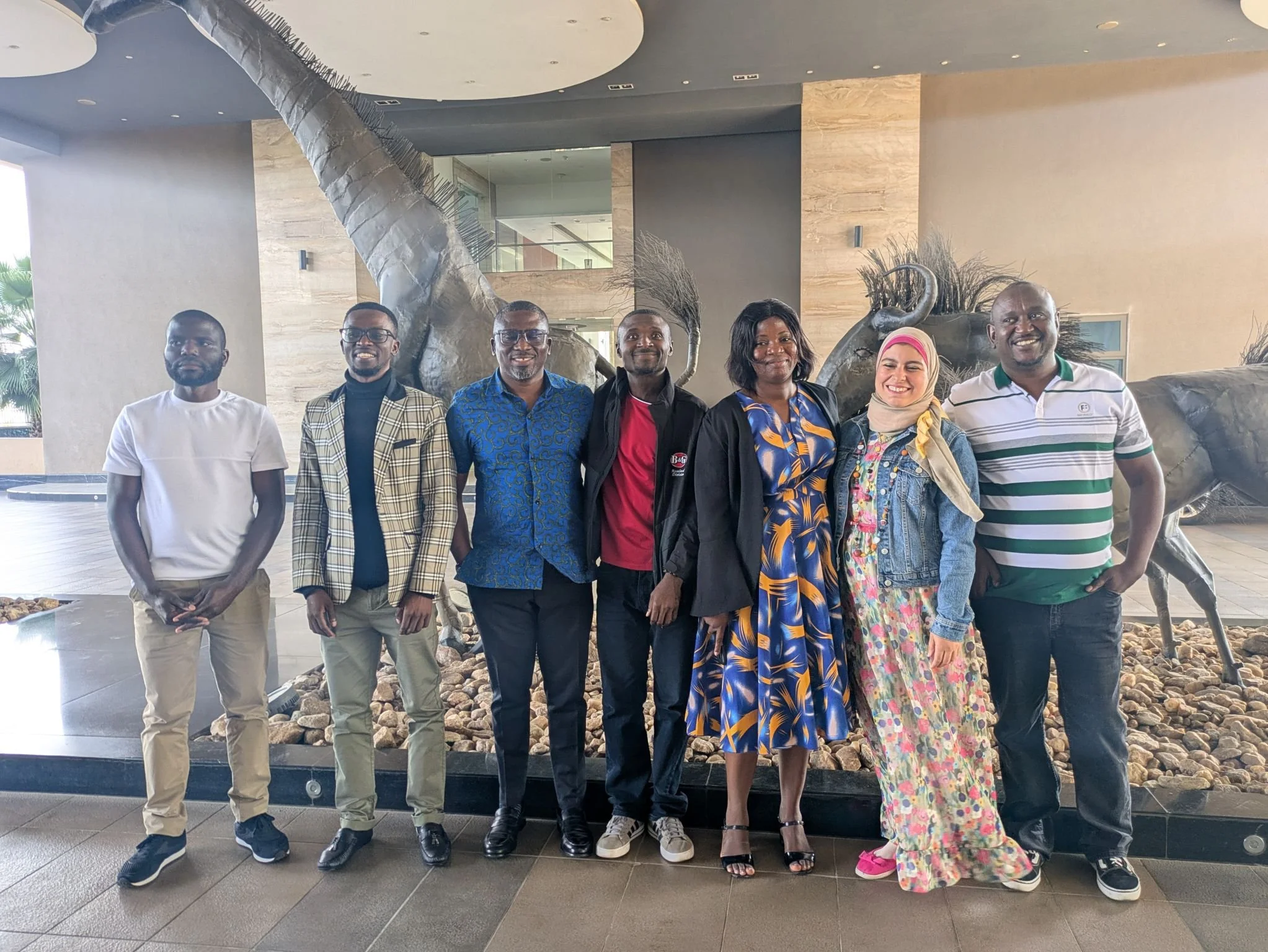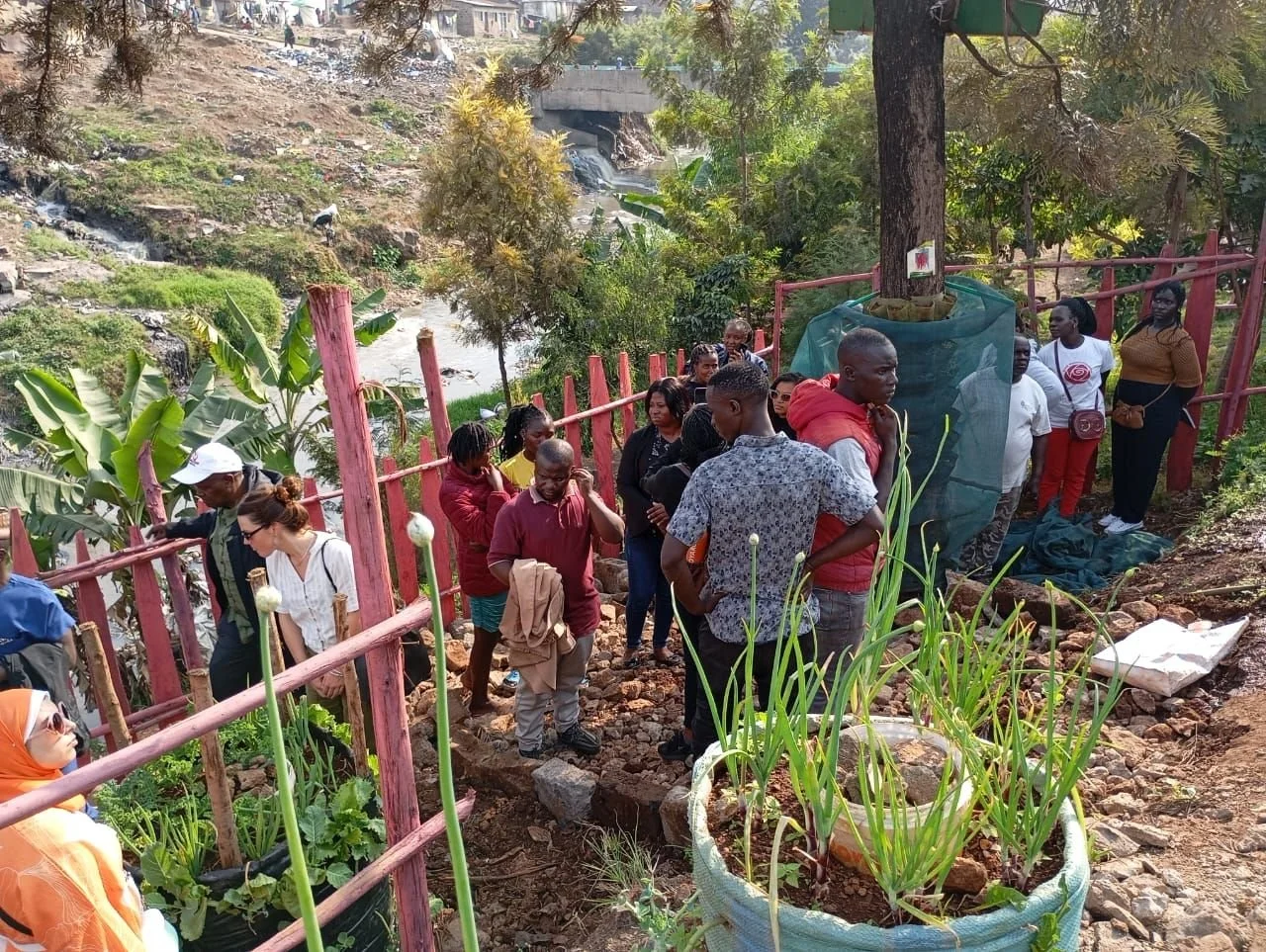Research fellows from across Africa gather in Nairobi to advance accountability in adaptation
From July 14th to 18th, Accountable Adaptation and the Africa Research & Impact Network (ARIN) co-hosted an intensive, week-long writeshop in Nairobi for seven mini-grant research fellows from across six African countries. Over the past six months, each fellow has been conducting research aimed at enhancing accountability in adaptation in the contexts of South Africa, Zimbabwe, Togo, Nigeria and Ghana. The write-shop was an opportunity for the fellows to come together, share their experiences, learn from each others’ work and establish cross-cutting themes using an accountability lens.
The Write-Shop
Collaborative Learning
The write-shop consisted of a series of small group discussions for fellows to deep-dive into each other’s work, one-to-one’s with mentors from Accountable Adaptation and ARIN and key interactive sessions in which fellows worked together to critically analyse and compare their case studies related to accountability in adaptation, to establish common themes, differences and areas for reflection.
Expert Input
Across the week there were lectures from Dr. Susannah Fisher and ARIN's Policy and Engagement Lead Dr. Charles Tonui who provided wider context on the adaptation landscape, including unpacking the Global Goal on Adaptation and its relationship to accountability. During the week, guest lectures from both the Climate Development and Knowledge Network and the Global Strategic Communications council, presented fellows with the opportunity to enhance their research skills, both in relation to knowledge brokering and key messaging tools for effective research communication.
Community Engagement
Fellows had the chance to gain a more practical insight into community adaptation and conversations around accountability, through a visit to Matthare informal settlement with Slum Dwellers International (SDI). Joining a community meeting led by SDI, fellows heard from different community workers spearheading initiatives in Matthare to improve waste-management, flood resistance and making Matthare a more liveable, greener space. Community members repeatedly echoed a powerful phrase: ‘information is power’. Their reflections resonated with the fellows’ own research - highlighting how access to data, when meaningfully used and communicated, can empower those with limited access to basic rights and services.
Key themes we discussed
Each of the fellow’s work has built upon Accountable Adaptation’s Working Paper and the conceptual framework it developed for accountability in adaptation. Throughout the week, the interactive analysis sessions were an opportunity to use this structured framework to interrogate key dimensions and themes related to accountability in adaptation in each of the fellow’s specific contexts. This included, in-depth discussions on the directionality of accountability, the provision of and access to key information related to climate adaptation, and what capabilities and feedback mechanisms existed to ensure that vital information is not lost or irrelevant.
As fellows discussed their case study data, several cross-cutting themes emerged. A central one was the role of information as the foundation for accountability — a critical starting point that is often missing. Discussions also highlighted how accountability is undermined by elite capture, statelessness, and uneven local political dynamics that shape whose knowledge is recognised. Horizontal accountability - between actors at the same level, such as within communities or local governments - also featured prominently. However, fellows questioned whether such arrangements genuinely empower people or simply shift more burden onto those already struggling to hold systems to account.
What’s next
After this intensive write-shop, fellows return to their case studies - some to collect more data and others to sharpen their existing findings. Drawing on the learnings from the week, each fellow will revise and enhance their research on accountability in adaptation, with the collective outputs contributing to a forthcoming book published by ARIN Press.
We look forward to sharing their findings soon!



